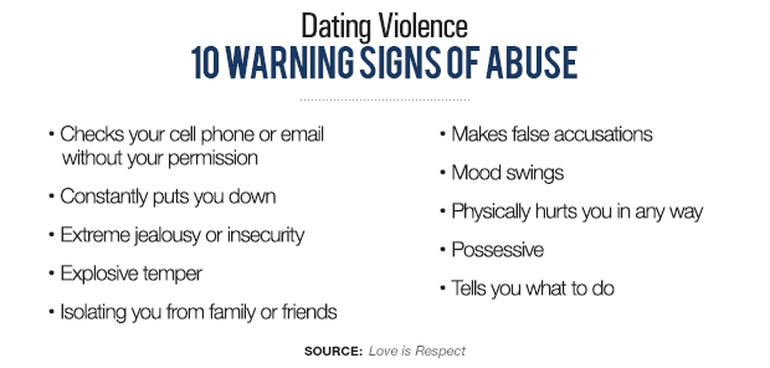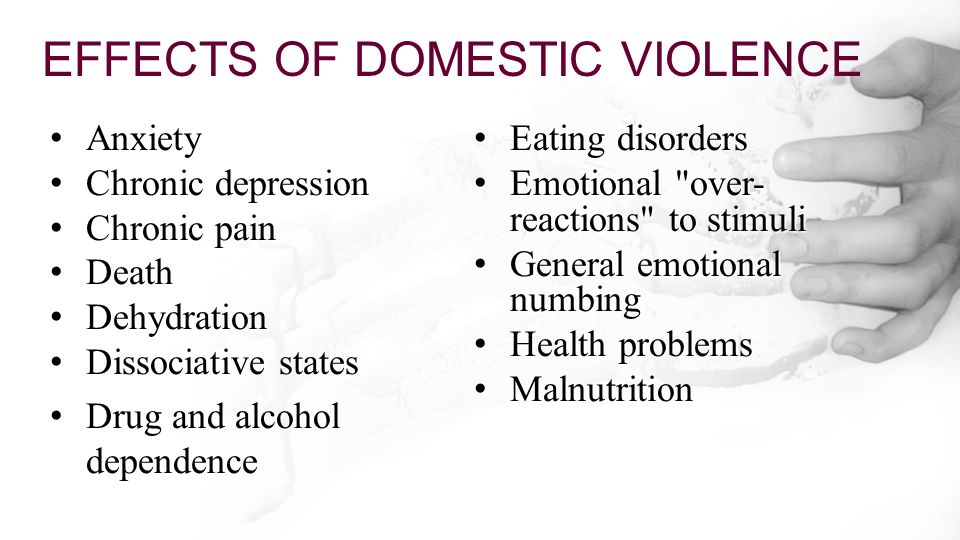Bettering a relationship
10 Things You Can Do To Improve Your Relationship
Relationships
written by CHRISTINA HUYNH
Source: cottonbro | Pexels
Whether you’ve been dating your partner for a few months or have been married for five years, healthy relationships are built from commitment, mutual respect, and effort. While you probably felt an immediate and effortless spark when you first met, it takes work to maintain that spark as your relationship develops—but don’t worry, it will be the most fun and rewarding work you’ll ever do. While every relationship is different, you can always work to improve your bond, friendship, and intimacy. Try these 10 things to improve your relationship RN.
1. Ask your partner something new
Communication is arguably the #1 determining factor of success for every relationship. It’s nice to ask how your partner’s day went, but it can feel routine when you ask the same thing every day or don’t branch out into new topics of conversation. Enhance your relationship and communication by putting in the extra effort to question your significant other on something more specific. By asking new questions (like “How did you feel about that?” or “What do you prefer doing at work instead?”), you’ll avoid going through the motions, listen more intently to each other, and have more meaningful discussions.
2. Designate a monthly date night
Between both of your busy schedules and nonstop responsibilities, the most foolproof way to guarantee that you’ll make time for each other is to set a night every month dedicated to strengthening your connection and reigniting that spark. Whether you’re looking to spice up your relationship or want to do something together that doesn’t include Netflix, schedule a date. The connection from even one night out can have long-term effects.
View this post on Instagram
A post shared by Amanda | According to Mandy (@accordingtomandy)
3.
 Say “thank you”
Say “thank you” Especially in relationships that have gone on for years and have fallen into routines, we can get so comfortable that we expect our partners to meet all of our needs, whether it’s how they treat us or the daily chores they do. Saying a simple “thank you” for cleaning the dishes after dinner or giving you a compliment enforces their good behavior and makes them feel appreciated as well as helps you remember why you love them. It’s also important to express appreciation and gratitude for them being in your life and how much they mean to you (and not just what they do for you).
4. Schedule a check-in
Scheduling might not seem very sexy and spontaneous, but making sure you’re regularly checking in with each other will keep your relationship strong. It can be easy to let annoyance after annoyance build up until it gets to a full-blown fight, so checking in means fewer fights, more communication, and better connection. After all, a relationship is just two people trying to get their needs met.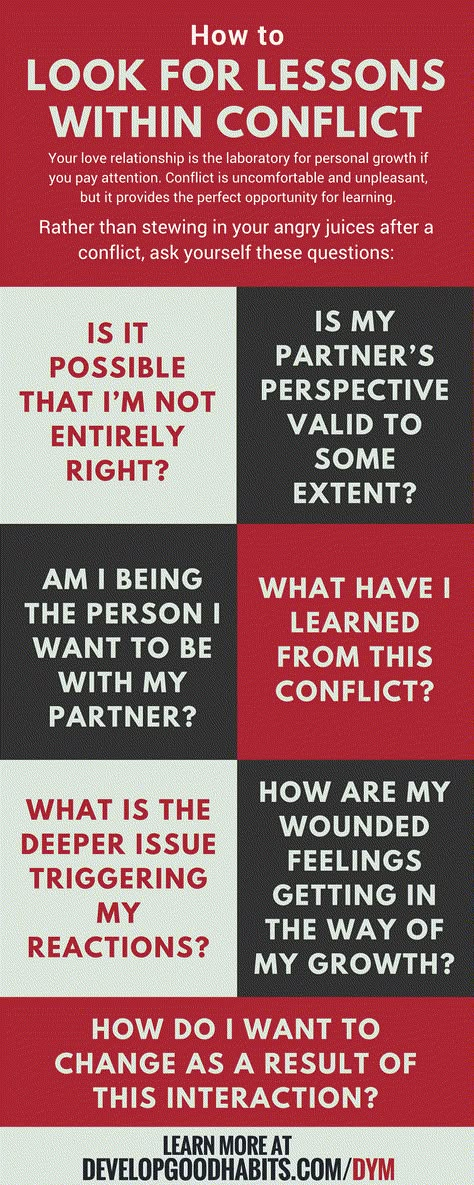 Use a check-in to discuss any recent triggers, problems, and even all the good things that deserve recognition too. Try doing this monthly, weekly, or even daily, and put it on your calendars so you don’t forget or skip it.
Use a check-in to discuss any recent triggers, problems, and even all the good things that deserve recognition too. Try doing this monthly, weekly, or even daily, and put it on your calendars so you don’t forget or skip it.
5. Remember the small things
Another way to add meaning to your conversation is to truly listen to what your significant other is saying and then bring up those little things again in the future. For example, if your partner mentions a new pair of shoes that they want, take note of it to gift it to them for their birthday coming up, or if your significant other says they want to try a restaurant you haven’t been to, suggest it for your next date night or surprise them with takeout. The fact that you pay attention to and remember even the minor details that your partner says will show how much you listen, care, and want them to feel loved. Overall, it’s the little things that mean the most.
View this post on Instagram
A post shared by ALEX LAROSA-WILLIAMS (@missalexlarosa)
6. Let go of the past
As a culprit for many potential arguments and the underlying issue for future ones, what happens in the past doesn’t always stay there. But it’s difficult to move forward in a relationship when you’re still thinking about past fights, problems, or issues that you’ve already resolved. If you find yourself continuing to dwell on the past, it might be a sign to take a step back and consider why. Are you naturally less forgiving or is what happened something you can’t seem to forgive? By focusing on the reason for this recurring feeling, you’ll find more clarity within yourself and about what you want from the relationship with your partner.
7. Show your affection
From grabbing your partner’s hand at a restaurant to going to bed together at the end of the night, you know how you feel about your partner, but they should be able to feel it as well. Physical touch goes a long way in keeping romance and connection alive in long-term relationships. Try to avoid physical touch routines, meaning the only physical touch in your daily life is a kiss goodbye or a hug hello (though these are also important gestures). In addition to your hellos and goodbyes, hug them unexpectedly, hold their hand in the car or while watching TV, or even just pat them on the arm to feel close. Physical closeness can translate to emotional closeness.
Physical touch goes a long way in keeping romance and connection alive in long-term relationships. Try to avoid physical touch routines, meaning the only physical touch in your daily life is a kiss goodbye or a hug hello (though these are also important gestures). In addition to your hellos and goodbyes, hug them unexpectedly, hold their hand in the car or while watching TV, or even just pat them on the arm to feel close. Physical closeness can translate to emotional closeness.
8. Learn your partner’s boundaries
Does your partner wish to be left alone when they’re upset? Do they mind that you want to text all day long, or do they prefer you call them when you’re apart at night? Is there a certain way they prefer to argue or certain topics they’re not comfortable discussing with you yet? These questions are simple, but the answers to them will help you understand your partner’s boundaries (and stop you from crossing them). Overall, your partner’s needs are most likely different from yours, and knowing their boundaries is the best way to respect them. Have conversations to explain your boundaries to each other, but also pay attention and ask questions to understand them better.
Have conversations to explain your boundaries to each other, but also pay attention and ask questions to understand them better.
View this post on Instagram
A post shared by Raff (@raffinee)
9. Laugh together
Relationships are just friendships with exclusivity. Loving each other is crucial, and liking each other is important too. While the life-partner stuff (like dividing chores) or the romantic stuff (like holding hands) might be top priorities to improve your relationship, remember that the friendship stuff is just as important. Laugh together at least once every day, whether it’s sharing a funny story that happened to you at the grocery store, bringing up an inside joke, or watching the show that makes you both laugh out loud. Laughing not only bonds us but also helps us remember that the point of being in a relationship is to enjoy the person we love.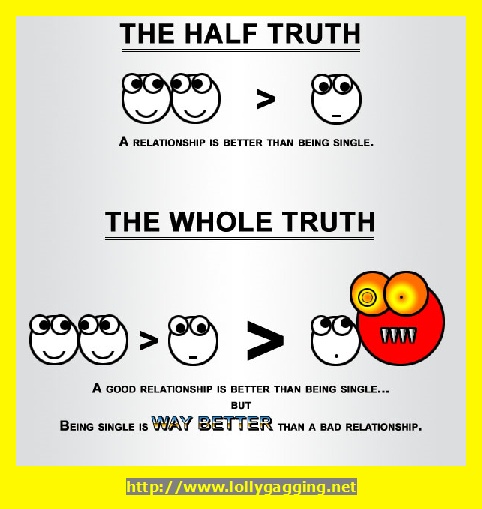
10. Make time to focus on yourself
How we feel about ourselves is how we’ll act in a relationship. For example, if you lack confidence in yourself, you’ll look for assurance in your relationship, or if you don’t like to be alone with yourself, you’ll need to be around your significant other 24/7. To prevent any toxic behaviors, it’s essential to have a strong sense of self: Invest in a new hobby, make plans with some friends, and take steps in discovering who you are as a person. By falling in love with yourself, you’ll naturally become the best version of yourself for the person who is falling in love with you.
- Tweet
- Pin
How to Have a Better Relationship - Well Guides
By Tara Parker-Pope
Illustrations by Mark Conlan
Can you spot a good relationship? Of course nobody knows what really goes on between any couple, but decades of scientific research into love, sex and relationships have taught us that a number of behaviors can predict when a couple is on solid ground or headed for troubled waters. Good relationships don’t happen overnight. They take commitment, compromise, forgiveness and most of all — effort. Keep reading for the latest in relationship science, fun quizzes and helpful tips to help you build a stronger bond with your partner.
Good relationships don’t happen overnight. They take commitment, compromise, forgiveness and most of all — effort. Keep reading for the latest in relationship science, fun quizzes and helpful tips to help you build a stronger bond with your partner.
Love and Romance
Falling in love is the easy part. The challenge for couples is how to rekindle the fires of romance from time to time and cultivate the mature, trusting love that is the hallmark of a lasting relationship.
What’s Your Love Style?
When you say “I love you,” what do you mean?
Terry Hatkoff, a California State University sociologist, has created a love scale that identifies six distinct types of love found in our closest relationships.
- Romantic: Based on passion and sexual attraction
- Best Friends: Fondness and deep affection
- Logical: Practical feelings based on shared values, financial goals, religion etc.

- Playful: Feelings evoked by flirtation or feeling challenged
- Possessive: Jealousy and obsession
- Unselfish: Nurturing, kindness, and sacrifice
Researchers have found that the love we feel in our most committed relationships is typically a combination of two or three different forms of love. But often, two people in the same relationship can have very different versions of how they define love. Dr. Hatkoff gives the example of a man and woman having dinner. The waiter flirts with the woman, but the husband doesn’t seem to notice, and talks about changing the oil in her car. The wife is upset her husband isn’t jealous. The husband feels his extra work isn’t appreciated.
What does this have to do with love? The man and woman each define love differently. For him, love is practical, and is best shown by supportive gestures like car maintenance. For her, love is possessive, and a jealous response by her husband makes her feel valued.
Understanding what makes your partner feel loved can help you navigate conflict and put romance back into your relationship. You and your partner can take the Love Style quiz from Dr. Hatkoff and find out how each of you defines love. If you learn your partner tends toward jealousy, make sure you notice when someone is flirting with him or her. If your partner is practical in love, notice the many small ways he or she shows love by taking care of everyday needs.
Reignite Romance
Romantic love has been called a “natural addiction” because it activates the brain’s reward center -- notably the dopamine pathways associated with drug addiction, alcohol and gambling. But those same pathways are also associated with novelty, energy, focus, learning, motivation, ecstasy and craving. No wonder we feel so energized and motivated when we fall in love!
But we all know that romantic, passionate love fades a bit over time, and (we hope) matures into a more contented form of committed love. Even so, many couples long to rekindle the sparks of early courtship. But is it possible?
Even so, many couples long to rekindle the sparks of early courtship. But is it possible?
The relationship researcher Arthur Aron, a psychology professor who directs the Interpersonal Relationships Laboratory at the State University of New York at Stony Brook, has found a way. The secret? Do something new and different -- and make sure you do it together. New experiences activate the brain’s reward system, flooding it with dopamine and norepinephrine. These are the same brain circuits that are ignited in early romantic love. Whether you take a pottery class or go on a white-water rafting trip, activating your dopamine systems while you are together can help bring back the excitement you felt on your first date. In studies of couples, Dr. Aron has found that partners who regularly share new experiences report greater boosts in marital happiness than those who simply share pleasant but familiar experiences.
Diagnose Your Passion Level
The psychology professor Elaine Hatfield has suggested that the love we feel early in a relationship is different than what we feel later. Early on, love is “passionate,” meaning we have feelings of intense longing for our mate. Longer-term relationships develop “companionate love,” which can be described as a deep affection, and strong feelings of commitment and intimacy.
Early on, love is “passionate,” meaning we have feelings of intense longing for our mate. Longer-term relationships develop “companionate love,” which can be described as a deep affection, and strong feelings of commitment and intimacy.
Where does your relationship land on the spectrum of love? The Passionate Love Scale, developed by Dr. Hatfield, of the University of Hawaii, and Susan Sprecher, a psychology and sociology professor at Illinois State University, can help you gauge the passion level of your relationship. Once you see where you stand, you can start working on injecting more passion into your partnership. Note that while the scale is widely used by relationship researchers who study love, the quiz is by no means the final word on the health of your relationship. Take it for fun and let the questions inspire you to talk to your partner about passion. After all, you never know where the conversation might lead.
Sex
For most couples, the more sex they have, the happier the relationship.
How Much Sex Are You Having?
Let’s start with the good news. Committed couples really do have more sex than everyone else. Don’t believe it? While it’s true that single people can regale you with stories of crazy sexual episodes, remember that single people also go through long dry spells. A March 2017 report found that 15 percent of men and 27 percent of women reported they hadn’t had sex in the past year. And 9 percent of men and 18 percent of women say they haven’t had sex in five years. The main factors associated with a sexless life are older age and not being married. So whether you’re having committed or married sex once a week, once a month or just six times a year, the fact is that there’s still someone out there having less sex than you. And if you’re one of those people NOT having sex, this will cheer you up: Americans who are not having sex are just as happy as their sexually-active counterparts.
But Who’s Counting?
Even though most people keep their sex lives private, we do know quite a bit about people's sex habits. The data come from a variety of sources, including the General Social Survey, which collects information on behavior in the United States, and the International Social Survey Programme, a similar study that collects international data, and additional studies from people who study sex like the famous Kinsey Institute. A recent trend is that sexual frequency is declining among millennials, likely because they are less likely than earlier generations to have steady partners.
The data come from a variety of sources, including the General Social Survey, which collects information on behavior in the United States, and the International Social Survey Programme, a similar study that collects international data, and additional studies from people who study sex like the famous Kinsey Institute. A recent trend is that sexual frequency is declining among millennials, likely because they are less likely than earlier generations to have steady partners.
Based on that research, here’s some of what we know about sex:
- The average adult has sex 54 times a year.
- The average sexual encounter lasts about 30 minutes.
- About 5 percent of people have sex at least three times a week.
- People in their 20s have sex more than 80 times per year.
- People in their 40s have sex about 60 times a year.
- Sex drops to 20 times per year by age 65.
- After the age of 25, sexual frequency declines 3.2 percent annually.
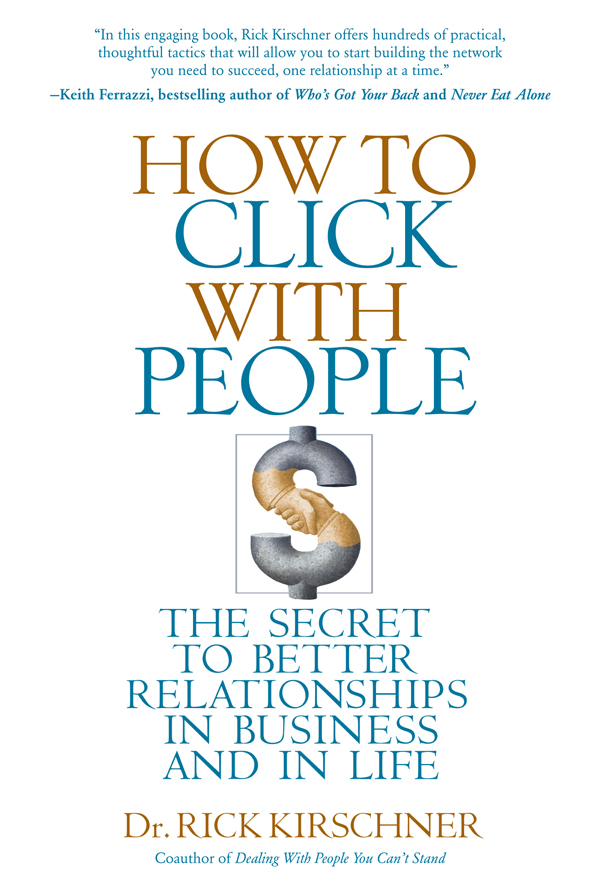
- After controlling for age and time period, those born in the 1930s had sex the most often; people born in the 1990s (millennials) had sex the least often.
- About 20 percent of people, most of them widows, have been celibate for at least a year.
- The typical married person has sex an average of 51 times a year.
- “Very Happy” couples have sex, on average, 74 times a year.
- Married people under 30 have sex about 112 times a year; single people under 30 have sex about 69 times a year.
- Married people in their 40s have sex 69 times a year; single people in their 40s have sex 50 times a year.
- Active people have more sex.
- People who drink alcohol have 20 percent more sex than teetotalers.
- On average, extra education is associated with about a week’s worth of less sex each year.
Early and Often
One of the best ways to make sure your sex life stays robust in a long relationship is to have a lot of sex early in the relationship. A University of Georgia study of more than 90,000 women in 19 countries in Asia, Africa and the Americas found that the longer a couple is married, the less often they have sex, but that the decline appears to be relative to how much sex they were having when they first coupled. Here’s a look at frequency of married sex comparing the first year of marriage with the 10th year of marriage.
A University of Georgia study of more than 90,000 women in 19 countries in Asia, Africa and the Americas found that the longer a couple is married, the less often they have sex, but that the decline appears to be relative to how much sex they were having when they first coupled. Here’s a look at frequency of married sex comparing the first year of marriage with the 10th year of marriage.
Why does sex decline in marriage? It’s a combination of factors — sometimes it’s a health issue, the presence of children, boredom or unhappiness in the relationship. But a major factor is age. One study found sexual frequency declines 3.2 percent a year after the age of 25. The good news is that what married couples lack in quantity they make up for in quality. Data from the National Health and Social Life Survey found that married couples have more fulfilling sex than single people.
The No-Sex Marriage
Why do some couples sizzle while others fizzle? Social scientists are studying no-sex marriages for clues about what can go wrong in relationships.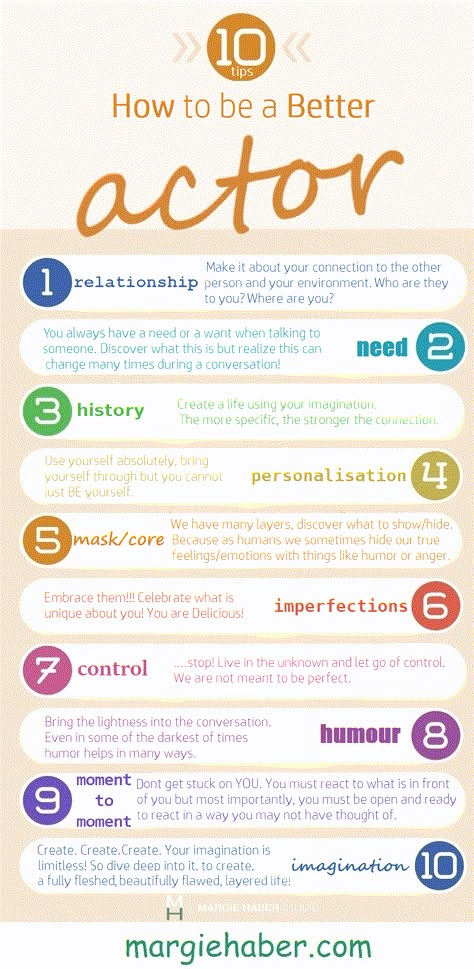
It’s estimated that about 15 percent of married couples have not had sex with their spouse in the last six months to one year. Some sexless marriages started out with very little sex. Others in sexless marriages say childbirth or an affair led to a slowing and eventually stopping of sex. People in sexless marriages are generally less happy and more likely to have considered divorce than those who have regular sex with their spouse or committed partner.
If you have a low-sex or no-sex marriage, the most important step is to see a doctor. A low sex drive can be the result of a medical issues (low testosterone, erectile dysfunction, menopause or depression) or it can be a side effect of a medication or treatment. Some scientists speculate that growing use of antidepressants like Prozac and Paxil, which can depress the sex drive, may be contributing to an increase in sexless marriages.
While some couples in sexless marriages are happy, the reality is that the more sex a couple has, the happier they are together. It’s not easy to rekindle a marriage that has gone without sex for years, but it can be done. If you can’t live in a sexless marriage but you want to stay married, see a doctor, see a therapist and start talking to your partner.
It’s not easy to rekindle a marriage that has gone without sex for years, but it can be done. If you can’t live in a sexless marriage but you want to stay married, see a doctor, see a therapist and start talking to your partner.
Here are some of the steps therapists recommend to get a sexless marriage back in the bedroom:
- Talk to each other about your desires.
- Have fun together and share new experiences to remind yourself how you fell in love.
- Hold hands. Touch. Hug.
- Have sex even if you don’t want to. Many couples discover that if they force themselves to have sex, soon it doesn’t become work and they remember that they like sex. The body responds with a flood of brain chemicals and other changes that can help.
Remember that there is no set point for the right amount of sex in a marriage. The right amount of sex is the amount that makes both partners happy.
A Prescription for a Better Sex Life
If your sex life has waned, it can take time and effort to get it back on track. The best solution is relatively simple, but oh-so-difficult for many couples: Start talking about sex.
The best solution is relatively simple, but oh-so-difficult for many couples: Start talking about sex.
- Just do it: Have sex, even if you’re not in the mood. Sex triggers hormonal and chemical responses in the body, and even if you’re not in the mood, chances are you will get there quickly once you start.
- Make time for sex: Busy partners often say they are too busy for sex, but interestingly, really busy people seem to find time to have affairs. The fact is, sex is good for your relationship. Make it a priority.
- Talk: Ask your partner what he or she wants. Surprisingly, this seems to be the biggest challenge couples face when it comes to rebooting their sex lives.
The first two suggestions are self-explanatory, but let’s take some time to explore the third step: talking to your partner about sex. Dr. Hatfield of the University of Hawaii is one of the pioneers of relationship science. She developed the Passionate Love scale we explored earlier in this guide.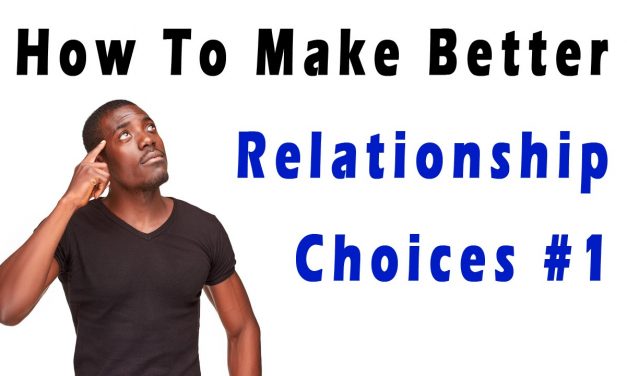 When Dr. Hatfield conducted a series of interviews with men and women about their sexual desires, she discovered that men and women have much more in common than they realize, they just tend not to talk about sex with each other. Here’s a simple exercise based on Dr. Hatfield’s research that could have a huge impact on your sex life:
When Dr. Hatfield conducted a series of interviews with men and women about their sexual desires, she discovered that men and women have much more in common than they realize, they just tend not to talk about sex with each other. Here’s a simple exercise based on Dr. Hatfield’s research that could have a huge impact on your sex life:
- Find two pieces of paper and two pens.
- Now, sit down with your partner so that each of you can write down five things you want more of during sex with your partner. The answers shouldn’t be detailed sex acts (although that’s fine if it’s important to you). Ideally, your answers should focus on behaviors you desire -- being talkative, romantic, tender, experimental or adventurous.
If you are like the couples in Dr. Hatfield’s research, you may discover that you have far more in common in terms of sexual desires than you realize. Here are the answers Dr. Hatfield’s couples gave.
Let’s look at what couples had in common. Both partners wanted seduction, instructions and experimentation.
Both partners wanted seduction, instructions and experimentation.
The main difference for men and women is where sexual desire begins. Men wanted their wives to initiate sex more often and be less inhibited in the bedroom. But for women, behavior outside the bedroom also mattered. They wanted their partner to be warmer, helpful in their lives, and they wanted love and compliments both in and out of the bedroom.
More on Sex in Relationships
Staying Faithful
Men and women can train themselves to protect their relationships and raise their feelings of commitment.
Can You Predict Infidelity?
In any given year about 10 percent of married people —12 percent of men and 7 percent of women — say they have had sex outside their marriage. The relatively low rates of annual cheating mask the far higher rate of lifetime cheating. Among people over 60, about one in four men and one in seven women admit they have ever cheated.
A number of studies in both animals and humans suggest that there may be a genetic component to infidelity. While science makes a compelling case that there is some genetic component to cheating, we also know that genetics are not destiny. And until there is a rapid-gene test to determine the infidelity risk of your partner, the debate about the genetics of infidelity isn’t particularly useful to anyone.
While science makes a compelling case that there is some genetic component to cheating, we also know that genetics are not destiny. And until there is a rapid-gene test to determine the infidelity risk of your partner, the debate about the genetics of infidelity isn’t particularly useful to anyone.
There are some personality traits known to be associated with cheating. A report in The Archives of Sexual Behavior found that two traits predicted risk for infidelity in men. Men who are easily aroused (called “propensity for sexual excitation”) and men who are overly concerned about sexual performance failure are more likely to cheat. The finding comes from a study of nearly 1,000 men and women. In the sample, 23 percent of men and 19 percent of women reported ever cheating on a partner.
For women, the main predictors of infidelity were relationship happiness (women who aren’t happy in their partnership are twice as likely to cheat) and being sexually out-of-sync with their partner (a situation that makes women three times as likely to cheat as women who feel sexually compatible with their partners).
Protect Your Relationship
1. Avoid Opportunity. In one survey, psychologists at the University of Vermont asked 349 men and women in committed relationships about sexual fantasies. Fully 98 percent of the men and 80 percent of the women reported having imagined a sexual encounter with someone other than their partner at least once in the previous two months. The longer couples were together, the more likely both partners were to report such fantasies.
But there is a big difference between fantasizing about infidelity and actually following through. The strongest risk factor for infidelity, researchers have found, exists not inside the marriage but outside: opportunity.
For years, men have typically had the most opportunities to cheat thanks to long hours at the office, business travel and control over family finances. But today, both men and women spend late hours at the office and travel on business. And even for women who stay home, cellphones, e-mail and instant messaging appear to be allowing them to form more intimate relationships outside of their marriages.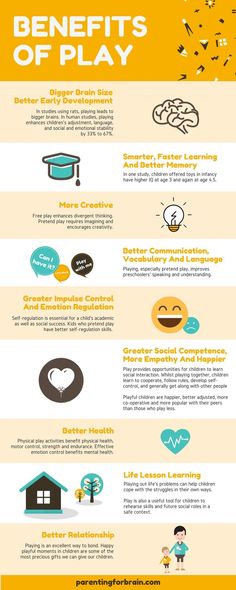 As a result, your best chance at fidelity is to limit opportunities that might allow you to stray. Committed men and women avoid situations that could lead to bad decisions -- like hotel bars and late nights with colleagues.
As a result, your best chance at fidelity is to limit opportunities that might allow you to stray. Committed men and women avoid situations that could lead to bad decisions -- like hotel bars and late nights with colleagues.
2. Plan Ahead for Temptation. Men and women can develop coping strategies to stay faithful to a partner.
A series of unusual studies led by John Lydon, a psychologist at McGill University in Montreal, looked at how people in a committed relationship react in the face of temptation. In one study, highly committed married men and women were asked to rate the attractiveness of people of the opposite sex in a series of photos. Not surprisingly, they gave the highest ratings to people who would typically be viewed as attractive.
Later, they were shown similar pictures and told that the person was interested in meeting them. In that situation, participants consistently gave those pictures lower scores than they had the first time around.
When they were attracted to someone who might threaten the relationship, they seemed to instinctively tell themselves, “He’s not so great.” “The more committed you are,” Dr. Lydon said, “the less attractive you find other people who threaten your relationship.”
Other McGill studies confirmed differences in how men and women react to such threats. In one, attractive actors or actresses were brought in to flirt with study participants in a waiting room. Later, the participants were asked questions about their relationships, particularly how they would respond to a partner’s bad behavior, like being late and forgetting to call.
Men who had just been flirting were less forgiving of the hypothetical bad behavior, suggesting that the attractive actress had momentarily chipped away at their commitment. But women who had been flirting were more likely to be forgiving and to make excuses for the man, suggesting that their earlier flirting had triggered a protective response when discussing their relationship.
“We think the men in these studies may have had commitment, but the women had the contingency plan — the attractive alternative sets off the alarm bell,” Dr. Lydon said. “Women implicitly code that as a threat. Men don’t.”
The study also looked at whether a person can be trained to resist temptation. The team prompted male students who were in committed dating relationships to imagine running into an attractive woman on a weekend when their girlfriends were away. Some of the men were then asked to develop a contingency plan by filling in the sentence “When she approaches me, I will __________ to protect my relationship.”
Because the researchers ethically could not bring in a real woman to act as a temptation, they created a virtual-reality game in which two out of four rooms included subliminal images of an attractive woman. Most of the men who had practiced resisting temptation stayed away from the rooms with attractive women; but among men who had not practiced resistance, two out of three gravitated toward the temptation room.
Of course, it’s a lab study, and doesn’t really tell us what might happen in the real world with a real woman or man tempting you to stray from your relationship. But if you worry you might be vulnerable to temptation on a business trip, practice resistance by reminding yourself the steps you will take to avoid temptation and protect your relationship.
3. Picture Your Beloved. We all know that sometimes the more you try to resist something -- like ice cream or a cigarette -- the more you crave it. Relationship researchers say the same principle can influence a person who sees a man or woman who is interested in them. The more you think about resisting the person, the more tempting he or she becomes. Rather than telling yourself “Be good. Resist,” the better strategy is to start thinking about the person you love, how much they mean to you and what they add to your life. Focus on loving thoughts and the joy of your family, not sexual desire for your spouse -- the goal here is to damp down the sex drive, not wake it up.
4. Keep Your Relationship Interesting. Scientists speculate that your level of commitment may depend on how much a partner enhances your life and broadens your horizons — a concept that Dr. Aron, the Stony Brook psychology professor, calls “self-expansion.”
To measure this quality, couples are asked a series of questions: How much does your partner provide a source of exciting experiences? How much has knowing your partner made you a better person? How much do you see your partner as a way to expand your own capabilities?
The Stony Brook researchers conducted experiments using activities that stimulated self-expansion. Some couples were given mundane tasks, while others took part in a silly exercise in which they were tied together and asked to crawl on mats, pushing a foam cylinder with their heads. The study was rigged so the couples failed the time limit on the first two tries, but just barely made it on the third, resulting in much celebration.
Couples were given relationship tests before and after the experiment. Those who had taken part in the challenging activity posted greater increases in love and relationship satisfaction than those who had not experienced victory together.The researchers theorize that couples who explore new places and try new things will tap into feelings of self-expansion, lifting their level of commitment.
Conflict
Every couple has disagreements, but science shows that how two people argue has a big effect on both their relationships and their health.
How to Fight
Many people try their best to avoid conflict, but relationship researchers say every conflict presents an opportunity to improve a relationship. The key is to learn to fight constructively in a way that leaves you feeling better about your partner.
Marriage researcher John Gottman has built an entire career out of studying how couples interact. He learned that even in a laboratory setting, couples are willing to air their disagreements even when scientists are watching and the cameras are rolling. From that research, he developed a system of coding words and gestures that has been shown to be highly predictive of a couple’s chance of success or risk for divorce or breakup.
From that research, he developed a system of coding words and gestures that has been shown to be highly predictive of a couple’s chance of success or risk for divorce or breakup.
In one important study, Dr. Gottman and his colleagues observed newly married couples in the midst of an argument. He learned that the topic didn’t matter, nor did the duration of the fight. What was most predictive of the couple’s marital health? The researchers found that analyzing just the first three minutes of the couple’s argument could predict their risk for divorce over the next six years.
In many ways, this is great news for couples because it gives you a place to focus. The most important moments between you and your partner during a conflict are those first few minutes when the fight is just getting started. Focus on your behavior during that time, and it likely will change the dynamics of your relationship for the better.
Here’s some general advice from the research about how to start a fight with the person you love:
Identify the complaint, not the criticism. If you’re upset about housework, don’t start the fight by criticizing your partner with, “You never help me.” Focus on the complaint and what will make it better. “It’s so tough when I work late on Thursdays to come home to dishes and unbathed kids. Do you think you could find a way to help more on those nights?”
If you’re upset about housework, don’t start the fight by criticizing your partner with, “You never help me.” Focus on the complaint and what will make it better. “It’s so tough when I work late on Thursdays to come home to dishes and unbathed kids. Do you think you could find a way to help more on those nights?”
Avoid “you” phrases. Phrases like “You always” and “You never” are almost always followed by criticism and blame.
Think about pronouns. Sentence that start with “I” or “We” help you identify problems and solutions, rather than putting blame on someone else.
Be aware of body language. No eye-rolling, which is a sign of contempt. Look at your partner when you speak. No folded arms or crossed legs to show you are open to their feelings and input. Sit or stand at the same level as your partner -- one person should not be looking down or looking up during an argument.
Learn to De-escalate: When the argument starts getting heated, take it upon yourself to calm things down. Here are some phrases that are always useful in de-escalation:
Here are some phrases that are always useful in de-escalation:
- “What if we…”
- “I know this is hard…”
- “I hear what you’re saying…”
- “What do you think?”
Dr. Gottman reminds us that fighting with your partner is not a bad thing.After all his years of studying conflict, Dr. Gottman has said he’s a strong believe in the power of argument to help couples improve their relationship. In fact, airing our differences gives our relationship “real staying power,” he says. You just need to make sure you get the beginning right so the discussion can be constructive instead of damaging.
Why Couples Fight
A famous study of cardiovascular health conducted in Framingham, Mass., happened to ask its 4,000 participants what topics were most likely to cause conflict in their relationship. Women said issues involving children, housework and money created the most problems in their relationships. Men said their arguments with their spouse usually focused on sex, money and leisure time.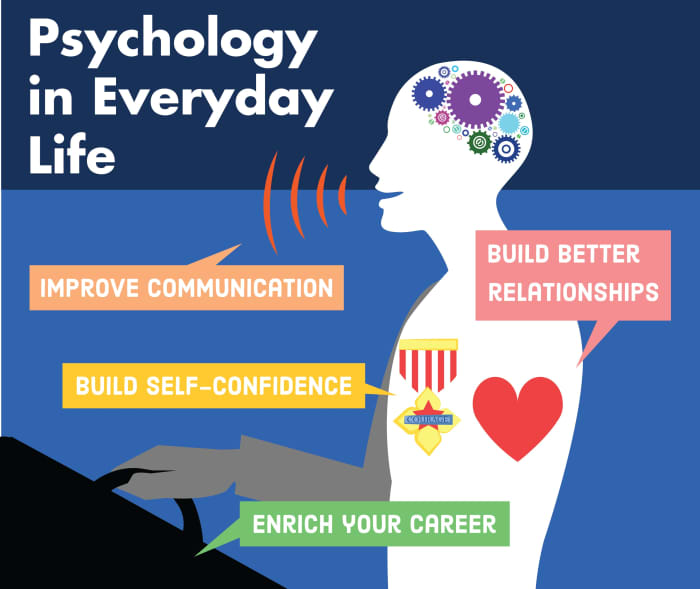 Even though the lists were slightly different, the reality is that men and women really care about the same issues: money, how they spend their time away from work (housework or leisure) and balancing the demands of family life (children and sex).
Even though the lists were slightly different, the reality is that men and women really care about the same issues: money, how they spend their time away from work (housework or leisure) and balancing the demands of family life (children and sex).
Money
Sometimes money problems become marriage problems.
Studies show that money is consistently the most common reason for conflict in a relationship. Couples with financial problems and debt create have higher levels of stress and are less happy in their relationship.
Why does money cause conflict? Fights about money ultimately are not really about finances. They are about a couple’s values and shared goals. A person who overspends on restaurants, travel and fun stuff often wants to live in the moment and seek new adventures and change; a saver hoping to buy a house some day may most value stability, family and community. Money conflict can be a barometer for the health of your relationship and an indicator that the two of you are out of sync on some of your most fundamental values.
David Olson, professor emeritus at the University of Minnesota, studied 21,000 couples and identified five questions you can ask to find out if you are financially compatible with your partner.
- We agree on how to spend money.
- I don’t have any concerns about how my partner handles money.
- I am satisfied with our decisions about savings.
- Major debts are not a problem
- Making financial decisions is not difficult.
Dr. Olson found that the happiest couples were those who both agreed with at least four of the statements. He also found that couples who did not see eye to eye on three or more of the statements were more likely to score low on overall marital happiness. Debt tends to be the biggest culprit in marital conflict. It can be an overwhelming source of worry and stress. As a result, couples who can focus on money problems and reduce their debt may discover that they have also solved most of their marital problems.
Here’s some parting advice for managing your money and your relationship:
Be honest about your spending: It’s surprisingly common for two people in a relationship to lie about how they spend their money, usually because they know it’s a sore point for their partner. Researchers call it “financial infidelity,” and when it’s discovered, it represents a serious breach of trust in the relationship. Surveys suggest secret spending occurs in one out of three committed relationships. Shopping for clothes, spending money on a hobby and gambling are the three most-cited types of secret spending that causes conflict in a relationship.
Maintain some financial independence: While two people in a relationship need to be honest with each other about how they spend their money, it’s a good idea for both sides to agree that each person has his or her own discretionary pot of money to spend on whatever they want. Whether it’s a regular manicure, clothes shopping, a great bottle of wine or a fancy new bike -- the point is that just because you have different priorities as a family doesn’t mean you can’t occasionally feed your personal indulgences.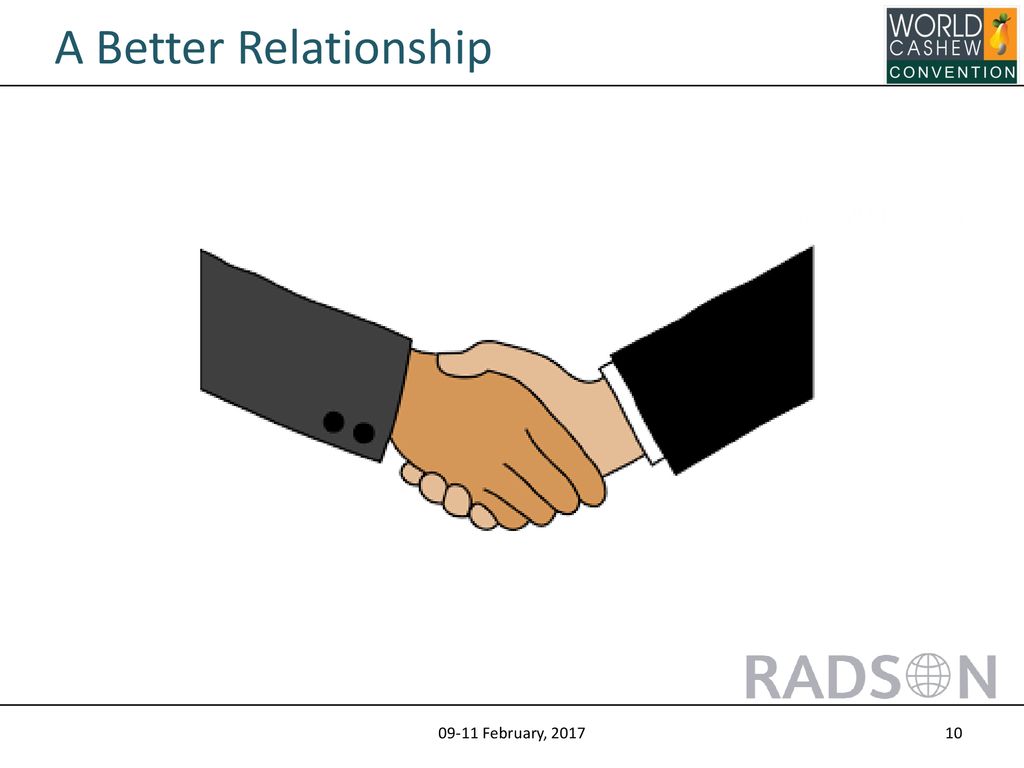 The key is to agree on the amount of discretionary money you each have and then stay quiet when your partner buys the newest iPhone just because.
The key is to agree on the amount of discretionary money you each have and then stay quiet when your partner buys the newest iPhone just because.
Invest in the relationship. When you do have money to spend, spend it on the relationship. Take a trip, go to dinner, see a show. Spending money on new and shared experiences is a good investment in your partnership.
Children
One of the more uncomfortable findings of relationship science is the negative effect children can have on previously happy couples. Despite the popular notion that children bring couples closer, several studies have shown that relationship satisfaction and happiness typically plummet with the arrival of the first baby.
One study from the University of Nebraska College of Nursing looked at marital happiness in 185 men and women. Scores declined starting in pregnancy, and remained lower as the children reached 5 months and 24 months. Other studies show that couples with two children score even lower than couples with one child.
While having a child clearly makes parents happy, the financial and time constraints can add stress to a relationship. After the birth of a child, couples have only about one-third the time alone together as they had when they were childless, according to researchers from Ohio State.
Here’s the good news: A minority of couples with children — about 20 percent — manage to stay happy in their relationships despite the kids.
What’s their secret? Top three predictors of a happy marriage among parents
- Sexual Intimacy
- Commitment
- Generosity
So there you have it. The secret to surviving parenthood is to have lots of sex, be faithful and be generous toward your partner. In this case, generosity isn’t financial — it’s about the sharing, caring and kind gestures you make toward your partner every day. When you are trying to survive the chaos of raising kids, it’s the little things — like bringing your partner coffee, offering to pick up the dry cleaning or do the dishes, that can make all the difference in the health of your relationship.
More on Conflict in Your Relationship
Make It Last
Here are some suggestions for how to strengthen your relationship based on the findings of various studies.
Stay Generous
Are you generous toward your partner? How often do you express affection? Or do small things for your partner like bring them coffee? Men and women who score the highest on the generosity scale are far more likely to report “very happy” marriages, according to research from the University of Virginia’s National Marriage Project.
Use Your Relationship for Personal Growth
Finding a partner who makes your life more interesting is an important factor in sustaining a long relationship.
Gary W. Lewandowski Jr., a professor at Monmouth University in New Jersey, developed a series of questions for couples: How much has being with your partner resulted in your learning new things? How much has knowing your partner made you a better person?
“People have a fundamental motivation to improve the self and add to who they are as a person,” Dr. Lewandowski says. “If your partner is helping you become a better person, you become happier and more satisfied in the relationship.”
Lewandowski says. “If your partner is helping you become a better person, you become happier and more satisfied in the relationship.”
Be Decisive
How thoughtfully couples make decisions can have a lasting effect on the quality of their romantic relationships. Couples who are decisive before marriage — intentionally defining their relationships, living together and planning a wedding — appear to have better marriages than couples who simply let inertia carry them through major transitions.
“Making decisions and talking things through with partners is important,” said Galena K. Rhoades, a relationship researcher at the University of Denver and co-author of the report. “When you make an intentional decision, you are more likely to follow through on that.”
While the finding may seem obvious, the reality is that many couples avoid real decision-making. Many couples living together, for instance, did not sit down and talk about cohabitation.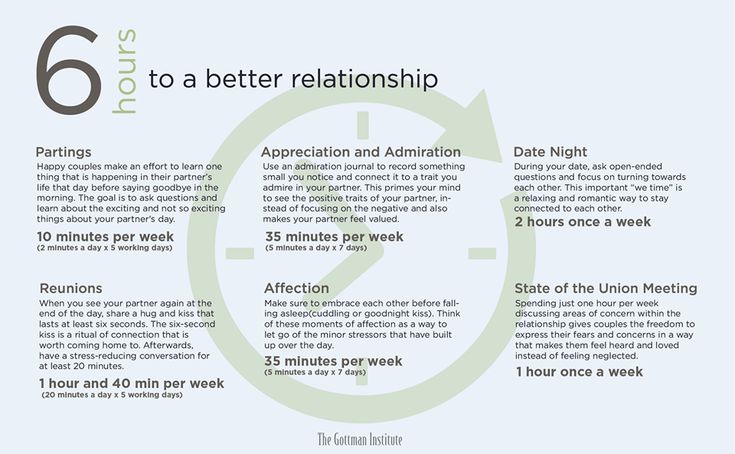 Often one partner had begun spending more time at the other’s home, or a lease expired, forcing the couple to formalize a living arrangement.
Often one partner had begun spending more time at the other’s home, or a lease expired, forcing the couple to formalize a living arrangement.
Showing intent in some form — from planning the first date, to living together, to the wedding and beyond — can help improve the quality of a marriage over all. To learn more, read about the science behind “The Decisive Marriage.”
“At the individual level, know who you are and what you are about, and make decisions when it counts rather than letting things slide,” Dr. Stanley said. “Once you are a couple, do the same thing in terms of how you approach major transitions in your relationship.”
Nurture Friends and Family
Sometimes couples become so focused on the relationship that they forget to invest in their relationships with friends and family. Researchers Naomi Gerstel of the University of Massachusetts, Amherst, and Natalia Sarkisian of Boston College have found that married couples have fewer ties to relatives than the unmarried. They are less likely to visit, call or help out family members, and less likely to socialize with neighbors and friends.
They are less likely to visit, call or help out family members, and less likely to socialize with neighbors and friends.
The problem with this trend is that it places an unreasonable burden and strain on the marriage, says Stephanie Coontz, who teaches history and family studies at The Evergreen State College in Olympia, Washington. “We often overload marriage by asking our partner to satisfy more needs than any one individual can possibly meet,” writes Dr. Coontz. “And if our marriage falters, we have few emotional support systems to fall back on.
To strengthen a marriage, consider asking less of it, suggests Dr. Coontz. That means leaning on other family members and friends for emotional support from time to time. Support your partner’s outside friendships and enjoy the respite from the demands of marriage when you’re not together.
See a Rom-Com
It sounds silly, but research suggests that seeing a sappy relationship movie made in Hollywood can help couples work out problems in the real world. A University of Rochester study found that couples who watched and talked about issues raised in movies like “Steel Magnolias” and “Love Story” were less likely to divorce or separate than couples in a control group. Surprisingly, the “Love Story” intervention was as effective at keeping couples together as two intensive forms of marriage therapy.
A University of Rochester study found that couples who watched and talked about issues raised in movies like “Steel Magnolias” and “Love Story” were less likely to divorce or separate than couples in a control group. Surprisingly, the “Love Story” intervention was as effective at keeping couples together as two intensive forms of marriage therapy.
Obviously, talking about a movie is not going to solve significant problems in a marriage, but the findings do signal the importance of communication in a marriage and finding opportunities to talk about your differences. “A movie is a nonthreatening way to get the conversation started,” said Ronald D. Rogge, an associate professor of psychology at the University of Rochester and the lead author of the study.
The best movies to start constructive communication are those that show various highs and lows in a relationship. Additional movies used in the study include “Couples Retreat,” “Date Night,” “Love and Other Drugs” and “She’s Having a Baby. ” Avoid movies that idealize relationships like “Sleepless in Seattle” or “When Harry Met Sally.”
” Avoid movies that idealize relationships like “Sleepless in Seattle” or “When Harry Met Sally.”
Even though some of the recommended movies are funny and not necessarily realistic, the goal is to simply “get a dialogue going,” said Dr. Rogge.
“I believe it’s the depth of the discussions that follow each movie and how much effort and time and introspection couples put into those discussions that will predict how well they do going forward,” said Dr. Rogge.
More on Lasting Relationships
Any Questions?
Find answers to your relationship questions.
How to strengthen relationships in a couple. What is the secret of harmonious relationships?
You have heard more than once, or maybe you yourself repeated the phrase: “Relationships are not easy!”. I would like to clarify. In theory, relationships themselves are very simple, because they develop in a natural rhythm according to the will of feelings: they met, fell in love, decided to be together. But the people involved in a relationship can make it difficult - and even very difficult. The fact is that we are not too pleased with the idea that "relationships need to be worked on." What kind of nonsense is this, but what about love? Why is a harmonious union, which arose from a great and bright feeling, not able to magically work by itself, like a well-oiled machine? Unfortunately, even the heroes of fairy tales do not hope for this. Relationships really take effort, and they can be strong and happy - if you know the right life hacks. A romantic connection can be strengthened and improved by working in two ways:
But the people involved in a relationship can make it difficult - and even very difficult. The fact is that we are not too pleased with the idea that "relationships need to be worked on." What kind of nonsense is this, but what about love? Why is a harmonious union, which arose from a great and bright feeling, not able to magically work by itself, like a well-oiled machine? Unfortunately, even the heroes of fairy tales do not hope for this. Relationships really take effort, and they can be strong and happy - if you know the right life hacks. A romantic connection can be strengthened and improved by working in two ways:
- demanding more of myself,
- demanding more from a partner.
No magic is required, everything is extremely simple and is set out below in ten tips, following which you get a sure chance to extend your relationship to the "forever" mode.
1. Be realistic.
True love is not at all like romantic love, which makes us not notice the shortcomings of a partner.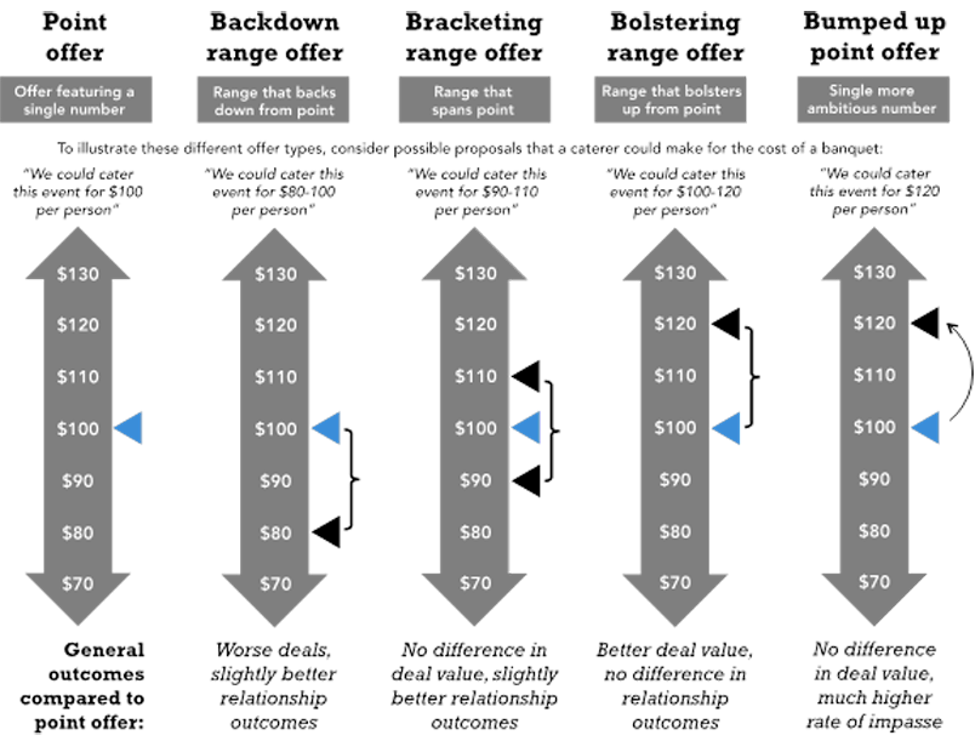 It's a choice. This is the constant support of another person, regardless of the circumstances. This is an understanding that your relationship will not always be cloudless. This is the need to deal with the problems of a partner, his fears and thoughts, even when you don’t feel like it at all. Such love is more prosaic, it requires much more effort from partners. But still, it gives a person much more. After all, in the end, it brings real happiness, and not another short-lived euphoria.
It's a choice. This is the constant support of another person, regardless of the circumstances. This is an understanding that your relationship will not always be cloudless. This is the need to deal with the problems of a partner, his fears and thoughts, even when you don’t feel like it at all. Such love is more prosaic, it requires much more effort from partners. But still, it gives a person much more. After all, in the end, it brings real happiness, and not another short-lived euphoria.
2. Respect each other.
This is the main thing in a relationship. Not attraction, not shared goals, not religion, not even love. There will be moments when you start to feel like you don't love each other at all anymore. But if you lose respect for your partner, you won't be able to get him back.
Communication, no matter how open and frequent it may be, in any case, someday will come to a standstill. Conflicts and insults cannot be avoided.
The only thing that will save your relationship is unwavering respect. Without it, you will always doubt each other's intentions, judge your partner's choices, and try to limit their independence.
Without it, you will always doubt each other's intentions, judge your partner's choices, and try to limit their independence.
In addition, you also need to respect yourself. Without self-respect, you will not be able to feel that you deserve the respect of a partner. You will constantly try to prove that you deserve it, and as a result, you will only harm your relationship.
- Never complain about your partner to your friends. If you are unhappy with something in his behavior, discuss it with him, and not with friends and relatives.
- Respect that your partner may have interests, hobbies and views that are different from yours.
- Consider the opinion of your half. Remember, you are one team. If someone alone is dissatisfied, then you need to look for a solution to the problem together.
- Do not keep everything to yourself, discuss any problems. You should not have taboo topics of conversation.
Respect is directly related to trust.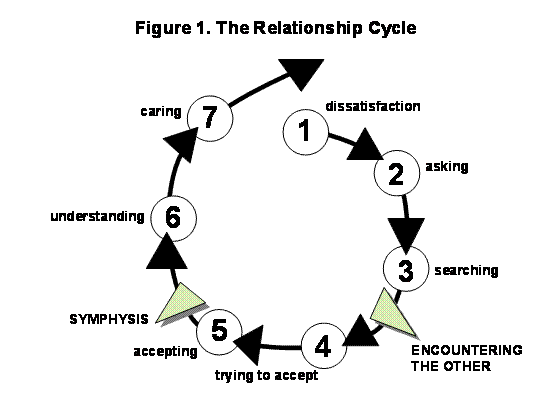 And trust is the foundation of any relationship (not just romantic ones). Without it, there can be no feeling of intimacy and calmness.
And trust is the foundation of any relationship (not just romantic ones). Without it, there can be no feeling of intimacy and calmness.
3. Discuss all problems.
If something does not suit you, be sure to discuss it. No one will fix your relationship for you. The main thing for maintaining trust is absolute honesty and openness of both partners.
- Share your doubts and fears, especially those you don't share with anyone else. This will help not only heal some emotional wounds, but also better understand the partner.
- Keep your promises. The only way to restore trust is to keep your word.
- Learn to distinguish between your partner's suspicious behavior and your own complexes. Usually during quarrels, one person thinks that his behavior is completely normal, while another seems categorically wrong.
Trust is somewhat like a porcelain plate. If it falls and breaks, then with great difficulty it can still be glued back together. If you break it a second time, there will be twice as many fragments, and it will also take more time and effort to put them together. But if you drop the plate over and over again, in the end, it will break into such small pieces that it will be impossible to glue them together.
If you break it a second time, there will be twice as many fragments, and it will also take more time and effort to put them together. But if you drop the plate over and over again, in the end, it will break into such small pieces that it will be impossible to glue them together.
4. Don't try to control each other.
We often hear that relationships require sacrifice. There is some truth in this: sometimes you really have to give up something. But if both partners constantly sacrifice themselves, they are unlikely to be happy. Such a relationship in the end will only harm them both.
Each person should be an independent person with their own views and interests.
Trying to control your partner to make him happy (or allowing you to control your own actions) will not achieve anything good.
Some are afraid to give their partner freedom and independence. The reason for this may be a lack of confidence or self-doubt. The less we value ourselves, the more we will try to control our partner's behavior.
The less we value ourselves, the more we will try to control our partner's behavior.
5. Be prepared for both of you to change.
Over time, you and your partner will change - this is completely natural. Therefore, it is important to always be aware of the ongoing changes and treat them with respect.
If you plan to spend several decades together, you need to be prepared for difficulties and unforeseen situations.
Significant changes experienced by many couples may include a change in religion and political views, a move to another country, or the death of relatives (including children).
When you start dating, you only know what this person is now. You have no way of knowing what it will be like in five or 10 years. Therefore, you need to be prepared for the unexpected. Of course, it's not easy. But the ability to quarrel properly can help here.
6. Learn to quarrel.
Psychologist John Gottman identified four signs of behavior that indicate a potential breakup:
- Character criticism (“You are stupid” instead of “You acted stupidly”).
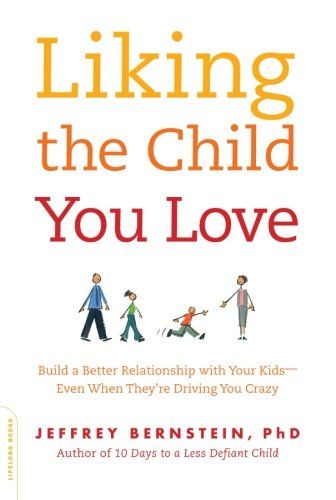
- Shifting blame.
- Insults.
- Avoiding a quarrel and ignoring a partner.
Therefore, it is worth learning how to quarrel properly:
- Do not remember previous scandals during one quarrel. This will not solve anything, but will only aggravate the situation.
- If the fight is heating up, stop. Go outside and walk around a bit. Return to the conversation only when you cool down.
- Remember, being right in a quarrel is not as important as feeling that you were listened to with respect.
- Do not try to avoid quarrels. Express your pain and admit what worries you.
7. Learn to forgive.
Do not try to change your partner - this is a sign of disrespect. Accept the fact that you have disagreements, love the person in spite of them, and try to forgive.
But how can one learn to forgive?
- When the quarrel is over, it doesn't matter who was right and who was wrong.
 Leave all conflicts in the past, and do not remember them every month.
Leave all conflicts in the past, and do not remember them every month. - No need to keep score. Relationships should not have winners and losers. Everything should be done and given free of charge, that is, without manipulation and expectation of something in return.
- When a partner makes a mistake, separate his behavior from his intentions. Do not forget that you appreciate and love in a partner. Everyone makes mistakes. And if a person made a mistake, this does not mean at all that he secretly hates you and wants to leave.
8. Be pragmatic
Any relationship is imperfect, because we ourselves are imperfect. Therefore, be pragmatic: determine what each of you is good at, what you like and dislike to do, and then assign responsibilities.
In addition, many couples are advised to pre-determine some rules. For example, how will you share all expenses? How much are you willing to borrow? How much can each partner spend without consulting the other? What do you need to buy together? How will you decide where to go on vacation?
Some even hold "annual reports", during which they discuss the conduct of business and decide what to change in the economy. This, of course, sounds trite, but this approach really helps to be aware of the needs and requirements of a partner and strengthens relationships.
This, of course, sounds trite, but this approach really helps to be aware of the needs and requirements of a partner and strengthens relationships.
9. Mind the little things.
Simple signs of attention, compliments and support mean a lot. All these little things accumulate over time and affect how you perceive your relationship. Therefore, many advise to continue to go on dates, go out somewhere for the weekend and be sure to find time for sex, even when you are tired. Physical intimacy not only keeps a relationship healthy, it even helps mend it when things go wrong.
This becomes especially important with the advent of children. In modern culture, they are almost prayed for. It is believed that parents should sacrifice everything for them.
The best guarantee that children will grow up healthy and happy is a healthy and happy relationship between parents.
So let your relationship always come first.
10. Learn to catch a wave.
Learn to catch a wave.
Relationships are like waves on the sea. Such waves are different emotions, ups and downs in a relationship. Some last only a few hours, others several months or even years.
The main thing is not to forget that these waves by themselves practically do not reflect the quality of the relationship. They are influenced by many external factors: loss or change of job, death of relatives, moving, financial difficulties. You just need to catch the wave with your partner, wherever it takes you.
It is important to understand that we ourselves can shape our life attitudes, emotions and feelings and consciously approach our relationships. Then it turns out that the secret of a long life together is not such a secret after all. Be open, grateful and focus on your love for each other, not on negative emotions!
Department of psychological support and career guidance,
tel. 79-567.
79-567.
How to maintain and improve relationships in a couple?
40,122
Man and woman Relationship crisis
1. Check how you see the future
This can be done either orally, to yourself, or out loud with a partner. One of the options: think about something, write it down on paper, and then discuss it with a partner. And the most ingenious solution is to make it in the form of a love letter. Even if it seems ridiculous and your current relationship does not imply this.
2. Don't be afraid to be funny
More humor and smiles. These fish swim only in clean water. If you are too serious, demanding a lot, out loud and to yourself, check if it's time to clear the pond of mud.
3. Talk to yourself
This is different from "repetition-muttering records". Take breaks, cultivate a time when you have nothing to do and you can look in the mirror and be honest with yourself.
4.
 Play with each other
Play with each other More common games with a partner, but in such a way that the emotions are real and the joy is new. Make up games! Do not be consumers, creativity is more than appropriate here. Make something together (saw firewood without getting tired), play table tennis, dance. Spend time together, thereby signing the importance of this "superfluous and random, but so necessary."
5. Adhere to the principle "be realistic - demand the impossible"
Imagination and desire are what revitalizes you and your loved ones. Demand quietly, but in such a way that it can be heard. And if they don't hear you, then maybe it's you.
6. Share important things with each other
There are two buckets on the “yoke of life” that you carry: a bucket of imagination, your inner world, and a bucket of realism. It's good when you can balance and carry them easily. Share both with your partner, but don't forget to use your imagination, no matter which "bucket" you prefer right now.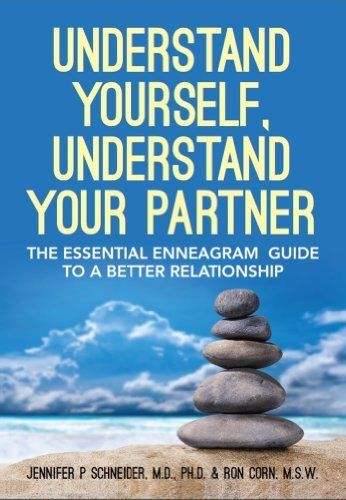
If it seems to you that the other person has lost the ability to love, check whether you yourself know how to love, “here and now”
7. Do not show your partner an account
: it's just your alarm turned on. Focus on it, not on what you think is content. When a person “sorts things out”, he is overwhelmed with them, and it seems to him that he is acting, but in fact he is walking in a circle.
8. Don't be afraid to grow old
Mentally travel through the ages, watch how people transition into adulthood and age beautifully, don't get stuck in glamorous youthful looks. If you are afraid of age, look into this fear as if into a mirror, do not turn away: a direct and long look is always better than shifty eyes.
9. Talk about feelings
Talk, choose words, be as sincere as possible, talk about what is interesting to you and your partner. Talk about boring details. Don't be lazy to look for them.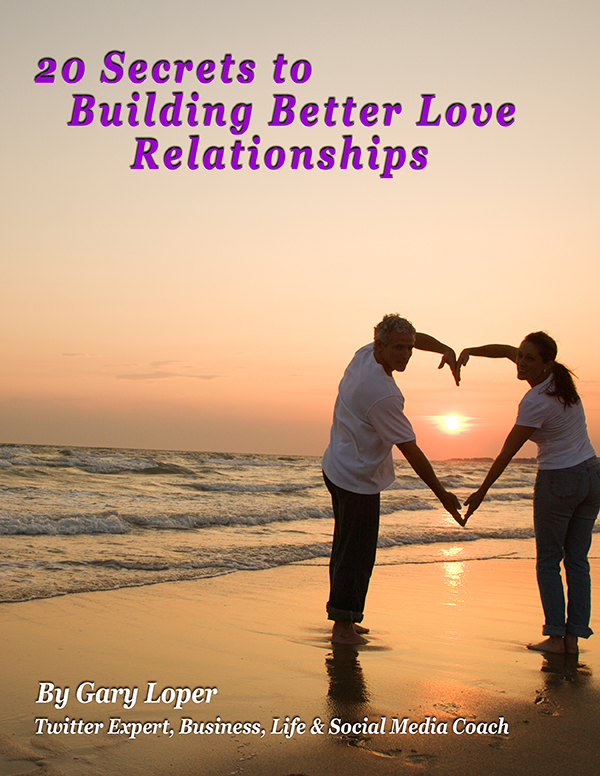 But most importantly, talk about feelings. If you are not being listened to, choose other words, be even more sincere. Feelings always hurt if they are genuine.
But most importantly, talk about feelings. If you are not being listened to, choose other words, be even more sincere. Feelings always hurt if they are genuine.
10. Deal with irritation
Where there is life, there is rubbish - you just need to clean it up. The job of cleaning up the trash in a relationship is your job, not the housekeeper's. You should not shift it to another, you should not be lazy to do it yourself.
11. Learn to express thoughts directly
Be witty and don't be afraid to hurt your partner. Sometimes it’s better to hurt, but to surprise a lot by unexpectedly opening a window. There may be blooming lilacs outside the open window.
12. Before asking a partner a question, ask yourself
Think more often about what you want, where you are, what you can give and what you can get as a gift. If it seems to you that the other has lost the ability to love, check whether you yourself know how to love "here and now" or set special conditions.





